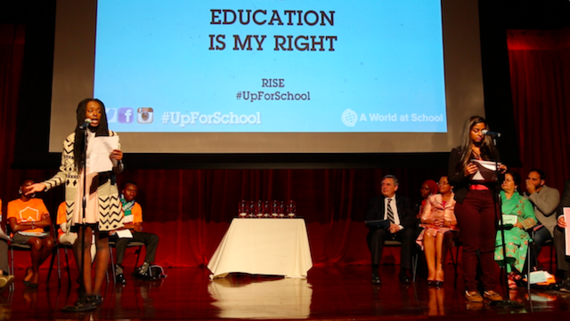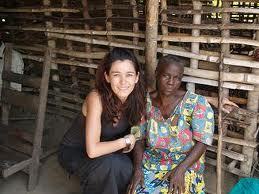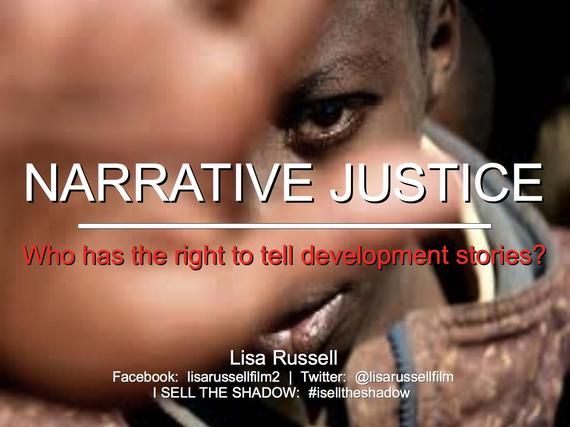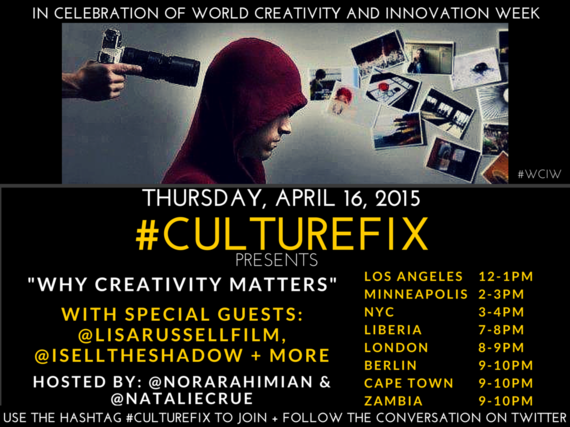Tomorrow starts World Creativity and Innovation Week (which runs April 15-21) and in honor of it, Emmy-winning filmmaker and Founder of "I Sell the Shadow", will be posting a series of articles outlining the importance of building meaningful and sustainable relationships between artists/innovators with the global health and development community.
While the terms "art and advocacy", "artivism", "storytelling" and "creative activism" are becoming more popular in the development arena, the discussion and analysis of why creativity matters has not been, in my opinion, adequately explored. While there seems to be a consensus that art is powerful and has the ability to move others (a necessity in an environment focused on policy, research and programs), the discussions have been limited to sharing interesting art projects, engaging beneficiaries in art-related activities or highlighting artists doing important work. In my opinion, a more in-depth conversation is necessary because art and artists can become critical partners in the post 2015 development agenda, at a time when the need to change the narrative of how we tell development stories is vital to the success of the upcoming SDGs.
When I started making films for UN/NGO agencies over 10 years ago, I didn't do so because I was in film school or had any thought of working as a filmmaker. I had witnessed first hand the harmful effects that media was having on development issues.
Upon completing my Masters in Public Health (MPH) at Boston University, I was working in Albania and Kosovo in 1999 as a humanitarian aid worker and was observing how very disconnected the news reports were in covering the people I met and the war that I was witness to. When two Kosovar women at a group meeting at the US Embassy expressed disappointment in how journalists were covering the story about rape as a tool of war ("we are doing a story about women who've been raped so can you raise your hand if you've been raped?"), they made a statement that has influenced my film work ever since.
"We fear at the end of this war, we will no longer be remembered as Kosovar women, but as Kosovar women who've been raped."
I began to pay attention to the real power of storytelling, both in terms of how it can help but also how it can exploit and perpetuate victimization of the people whom humanitarian efforts are trying to empower. This propelled me into a determination to tell these stories differently, by creating multidimensional "characters" (ie seeing an individual as a young person first before seeing them as a young person affected by war) and using a health and human rights lens.
But as i started picking up more film projects with UN/NGO agencies, I struggled with telling these stories that I felt perpetuated negative imagery. How could I make a film about obstetric fistula, for example, without showcasing the horrific consequences of this childbearing injury? Would I be minimizing their plight if I focused only on the positive outcomes, not on the numerous women still living with the disorder? Looking at my own sense of privilege being a Western filmmaker, am I even the right person to tell this story?
My thoughts and involvement as a storyteller have evolved over the years and after much self reflection and research, I feel I have developed a better grasp of both the dilemma and opportunities facing UN/NGO agencies in telling their stories. I've founded a new initiative called "I Sell the Shadow" which aims to build more meaningful and sustainable partnerships between artists/innovators and UN/NGO agencies. We've had the honor of bringing socially-conscious spoken word poetry, music, film and even beatboxing to high level gatherings on pressing development issues. And I've been speaking and conducting workshops around the topic, "Narrative Justice: Who Has the Right to Tell Development Stories?"
Some of the points referenced in my presentation include:
"I Sell the Shadow" Youth Poets perform at the 2014 UN ECOSOC Youth Forum
- THE POWER OF STORY: We are moved by stories. Stories are the culmination of thousands of interactions and experiences and it becomes the 'lens' through which we interpret the world around us. Hence when we are presented with facts, or dry arguments, we listen defensively and critically. When we are absorbed in a story, we are moved emotionally and we drop our intellectual guard.
- THE NEXT GLOBAL ECONOMY: According to the book by Richard Florida, "The Rise of the Creative Class", our next global economy will be driven by creatives (scientists, engineers, architects, educators, writers, artists, and entertainers. In the US alone, there are an estimated 38 million members (more than 30 percent of the U.S. workforce,) With such powerful influence in the global economy, shouldn't these members have a role to play in shaping the next 15 years of global development? My answer is YES!
In the next week, I will be publishing articles highlighting various creative projects with UN/NGOs with recommendations on how to better engage and sustain relationships with artists (including how to compensate them!). Follow me here on Huffington Post for the articles and join me and #CultureFix (a global network of artivists) for a Twitter Chat on 4/16 at 3pm EST on "Why Creativity Matters."




